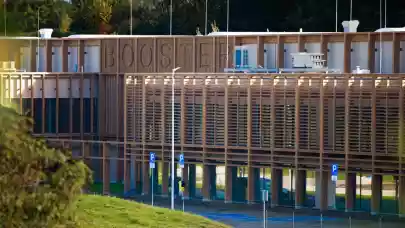
Valuers are often listed among the professionals most likely to be affected by technology but few believe that all of their tasks can be done by robots. Stewart Thomson, Country Head for the Czech Republic at BNP Paribas Real Estate shared his expectations for the investment market and the future of the valuation business.
What are your expectations for the Czech investment market in 2018?
2018 will be another strong year for Czech real estate investment, fuelled by continued demand. The only limiting factor will be the availability of investment opportunities. We don’t predict 2018 will reach the same level of investment volumes as in 2017 due to the lack of so many large transactions on the market. However, we don’t foresee a drop in an overall activity.
Yields for prime properties have fallen to 2007 levels and in some cases below. However, we are currently in a much different financing climate. In 2007 the average Euribor rate was over 4.00% whereas the rate is currently sub-zero. Further to this, in 2007 Czech ten-year bonds were at 4.10% whereas today such bonds are at c. 1.80%. This shows that compared to the peak of the previous cycle the spread on both debt and bonds is considerably better in 2018.
Further to this, we don’t see the let up in the weight of money looking at the Czech Republic, geopolitical issues in the Middle East and Asia are encouraging investors to seek European real estate as a safer market for investment.

Do you see a shift in the popularity of different investment products?
2018 saw a number of large retail transactions, which was symptomatic of the overall strong market characteristics. As the economy is doing well and consumer spending continues to rise retail has strong fundamentals, this, in turn, supports the logistics sector through the retailers’ supply chain and e-commerce. Both retail and logistics attract more specialist investors whereas offices tend to attract a broader base of investors.
Do you see any new locations emerging within Prague? Are investors looking at regional cities as well?
If we focus on the office market we can certainly see a number of new locations opening up. The traditional hotspots of Pankrac, Andel and Karlin have limited new development opportunities, therefore developers are pushing into locations that were not previously considered to be core. Districts such as Prague 7 and 9 that until recently had the highest vacancy rate in the city will see a great deal of new development. Holesovice, Palmovka and Vysocany will become established locations in the short term of the back of serious investment by AFI, Skanska, Metrostav and Crestyl.
In terms of the regions, for logistics and retail, the location is less important than the performance of the asset and the markets it serves. Investors are ready and willing to venture outside of Prague for these assets. However, for offices, international investors are still reticent to look outside of Prague. This creates a great opportunity for Czech investors who have the local knowledge and resources to manage regional assets.

Are there any signs of new technologies changing the way investment deals are done in the Czech Republic?
Marketing of investment properties has certainly benefitted from new technologies. In the past a hard copy or pdf information memorandum would be the main marketing tool. Now it is normal to have a video, supported by drone footage and website for most disposals. Furthermore, data management has been much improved with online data rooms and real-time Q&A.
What are the main challenges valuers currently need to face on the Czech market?
As the market matures and databases expand there is more and more historical data to fall back on. However, there still is a high demand to provide accurate reports of good quality.
How have innovations in property valuation impacted the valuation business?
I think that the door is just starting to open for new technologies in valuation, valuation software such as Argus is commonplace, however far more automation can be expected into the future, particularly in residential (single family homes or apartments) where comparable data may be more readily available. However, for the valuation of commercial properties where there are numbers of more complex variables, I still believe that there is a strong need for human input. It has been long said that valuation is both a science and an art, where a valuer has to use mathematical principles to calculate a value, but the inputs need to be carefully considered and modified by the valuer, using their judgement and experience.



